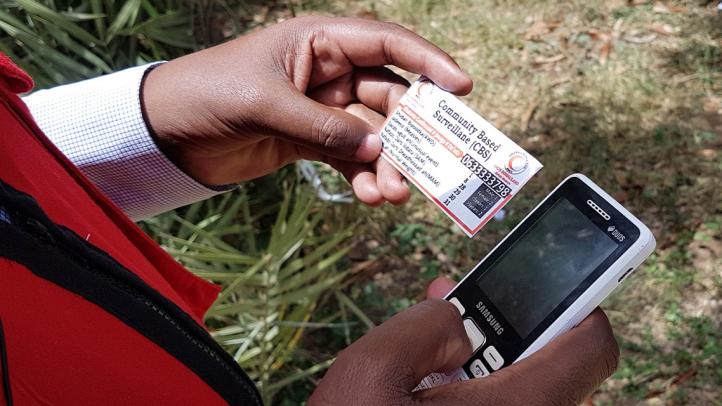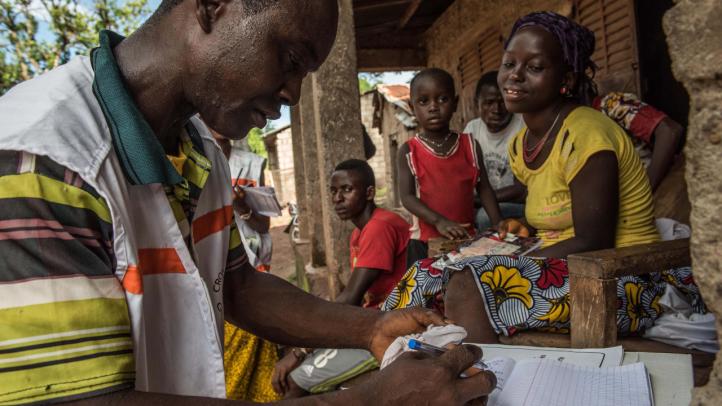Why is CBS useful as part of emergency response?
Community-based surveillance isn't just useful as part of everyday routine preparedness, it can be conducted as part of emergency response, too.
CBS can help reduce loss of life by preventing or limiting outbreaks or potential outbreaks of diseases during emergencies—whether during a sudden-onset disaster, protracted crisis or a health emergency—when there is a clear need for disease surveillance.
Emergency Response Units (ERUs) are teams of specialized personnel and equipment that can deploy at short notice to sudden and slow on-set disasters. They are coordinated by the IFRC in collaboration with National Societies. ERUs can provide specific preventive as well as life-saving services when local facilities are destroyed, overwhelmed or non-existent.
A Public Health Emergency Response Unit for Community Based Surveillance (CBS ERU) is a standardized, stand-alone unit. It consists of a light team of highly trained personnel with a portable setup ready to be deployed on short notice to international emergencies.
The overall objective of the CBS ERU is to support the establishment of a CBS system for detecting and reporting of events of public health significance within a community by community members, to strengthen the response during an emergency. Learn more here.
The CBS ERU complements existing health-related ERUs. For instance, it can link detected cases for referral to a clinical ERU. Or it can be deployed together with a community-case management of cholera ERU (CCMC), to allow for effective data collection at oral rehydration points
Click here to learn more about IFRC Emergency Response Units.
CBS ERU Handbook
Access the comprehensive community-based surveillance ERU handbook put together by Norwegian Red Cross.


